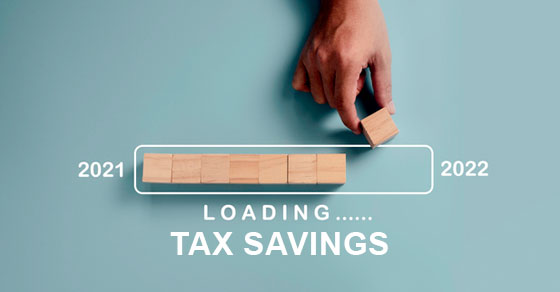

If you’re starting to worry about your 2021 tax bill, there’s good news — you may still have time to reduce your liability. Here are three quick strategies that may help you trim your taxes before year-end.
Thinking about buying new or used equipment, machinery or office equipment in the new year? Buy them and place them in service by December 31, and you can deduct 100% of the cost as bonus depreciation. Contact us for details on the 100% bonus depreciation break and exactly what types of assets qualify.
Bonus depreciation is also available for certain building improvements. Before the 2017 Tax Cuts and Jobs ACT (TCJA) bonus depreciation was available for two types of real property: land improvements other than buildings (for example fencing and parking lots) and “qualified improvement property,” a broad category of internal improvements made to nonresidential buildings after the buildings are placed in service. The TCJA inadvertently eliminated bonus depreciation for qualified improvement property. However the 2020 CARES Act made a retroactive technical correction to the TCJA. The correction makes qualified improvement property placed in service after December 31, 2017, eligible for bonus depreciation.
Keep in mind that 100% bonus depreciation has reduced the importance of Section 179 expensing. If you’re a small business, you’ve probably benefited from Sec. 179. It’s an elective benefit that subject to dollar limits, allows an immediate deduction of the cost of equipment, machinery, “off-the-shelf” computer software, and some building improvements. Sec. 179 expensing was enhanced by the TCJA, but the availability of 100% bonus depreciation is economically equivalent and thus has greatly reduced the cased in which Sec. 179 expensing is useful.
If your business operates on a cash basis, you can significantly affect your amount of taxable income by accelerating your deductions into 2021 and deferring income into 2022 (assuming you expect to be taxed at the same or a lower rate next year).
For example, you could put the recurring expenses normally paid early in the year on your credit card before January 1- that way, you can claim the deduction for 2021 even though you don’t pay the credit card bill until 2022. In certain circumstances, you can also prepay some expenses, such as rent or insurance and claim them in 2021.
As for income, wait until close to year-end to send out invoices to customers with reliable payment histories. Accrual-basis businesses can take a similar approach, holding off on the delivery of goods and services until next year.
Bear in mind that some of these tactics could adversely impact other factors affecting your tax liability, such as the qualified business income deduction. Contact your DDK Tax Advisor to make the most of your tax planning opportunities.

